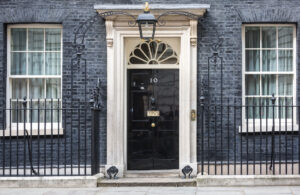Social media is a great place to put your own content. You’ll have realised that by now. No journalists to misinterpret it or put their own spin in place, just your business and its readership. It should be ideal but there’s a problem. You don’t own your social media.
At the time of writing this has become apparent to a lot of people. Some are higher profile than others. One you probably won’t have heard of is a friend of a friend (bear with us, it’s a true story). He has a large profile on LinkedIn and is known for being a little unorthodox (you can translate this as “he swears like a trooper”). He gave out a casual insult (to someone he knows well) in a LinkedIn group.
LinkedIn revoked his access almost immediately. Not just to the group but to the whole of the network. It took weeks to get this looked at by a human being who could see the lack of harm immediately. However there will have been damage in the meantime. LinkedIn is social media and like all of the other networks it’s owned by someone other than its users – in this case Microsoft.
Social media and business
A number of people will say that social networks are too involved in their own power grabs. Twitter in particular has come in for flak since Elon Musk bought the entire business. This comes mostly from people who believe the content has moved further to the right of the political spectrum. It may well have done so; the problem, though, is that people on the right had previously felt alienated.
They didn’t like that it was a largely lower-case-l-liberal playground. It’s now a rather further right playground and it has fewer staff keeping people safe, but this is the point. Neither set of people owned it.
And yet.
People keep using social media as their main marketing platform. Years ago LinkedIn had something called LinkedIn Events (it does now but it’s a different thing). People would sell places on their LinkedIn event and earn a living by doing so. One day LinkedIn decided it no longer wanted to sustain these events for the very good reason that they were not bringing in any cash for the company.
Members complained vehemently. LinkedIn had ruined their businesses, they said. How dare LinkedIn damage their livelihood. You could see why they were annoyed except in one respect. They did not own LinkedIn. None of them paid for it. You might just as well ask: how dare they use a network they didn’t own to promote their vested interests?
Social media and governments

There are other examples in which entire governments have taken against social networks. On the day we are typing this blog entry (we’re very current here) the British government has banned its employees from having Tik Tok on their phones.
What’s that? You make a product or offer a service to teenagers and Tik Tok is the very place you want to promote it? That’s fine, you’re not affected by a government ban but here’s the thing: when the government starts to issue edicts people start to pay attention. Lots of it. If you doubt that then you need to consider the fate of Huawei. It’s a worldwide concern and survived but have a look at its collapsing share of the phone market on that link. Up until 2020 it was in the top five suppliers. Everybody stopped buying it once then-president Trump banned Google from working with it. So it didn’t have access to the Android system any more.
Predictions are dangerous things but suspicion over China could damage Tik Tok’s position on the world stage of social media. The result would be that anybody whose marketing presence depends excessively on Tik Tok would need to look again, rather carefully. Nobody knows what’s going to happen with this one but it’s certainly something to watch.
You need your own playground
The problem with using someone else’s playground is that you end up needing to play by their rules. Let’s say Clapperton Media set up its own social network. This is a stretch, and a bigger stretch is: let’s say it really took off and that you wanted to use it.
Now let’s say Guy had some stupid idea to make it distinctive (this is less of a stretch) and decided everybody had to have a rabbit in their avatar picture. He also decides that you have to refer to rabbits somewhere in every post (OK, this is back to “a bit of a stretch”).
If you want to take part in our network you have no choice. As long as we’re policing our own network adequately it’s our playground and works to our rules. Users and others in the community can object as much as they wish but the bottom line is that if you don’t like it, you don’t have to be there.
Ditto LinkedIn if you want to go a bit rogue with your tone. It’s the same with Twitter if you don’t like Elon Musk or the promoted Tweets you’re getting or indeed Tik Tok if you agree with various governments about security risks pertaining to China.
Effectively you need your own playground which is why we worry about companies, particularly on the smaller side, throwing everything into a particular network and neglecting their own website.
You need the other playground too!
This doesn’t mean social networks are unimportant. You need to claim your own company name on all of the networks to ensure nobody else does, say an unscrupulous competitor. Also never forget that the first place a journalist will look when preparing to interview you is LinkedIn. You might well find they actually go to Google first but LinkedIn’s search engine optimisation is so good that they’ll find your entry there as well.
However, this is a bit like having a market stall in someone else’s market. It might serve you extremely well but you’re always going to be bound by the rules of that particular market and if the owner decides to start imposing new rules, charging or anything else, you might be without a place.
Always, always keep your own site in order as well as communicating on someone else’s site.


 The thing is, lead trainer and founder
The thing is, lead trainer and founder  When we were preparing Clapperton Media for the redesign and rebrand (if you like the website then we got it right, if you don’t, not so much) we spoke to a few advisors. One of them asked us what our main mission in life was and we said – as it says on the
When we were preparing Clapperton Media for the redesign and rebrand (if you like the website then we got it right, if you don’t, not so much) we spoke to a few advisors. One of them asked us what our main mission in life was and we said – as it says on the